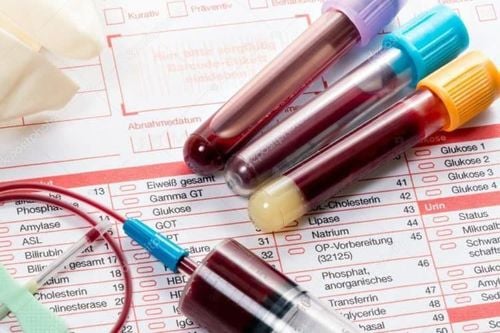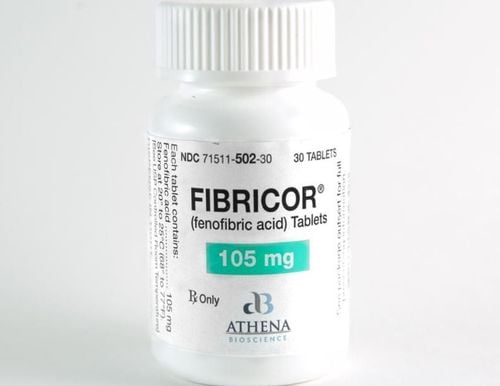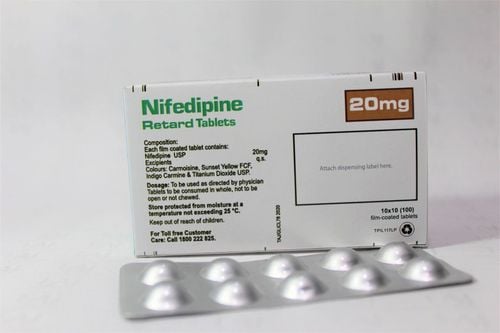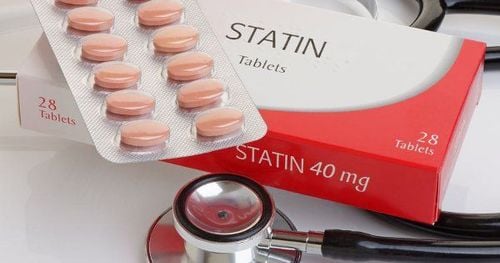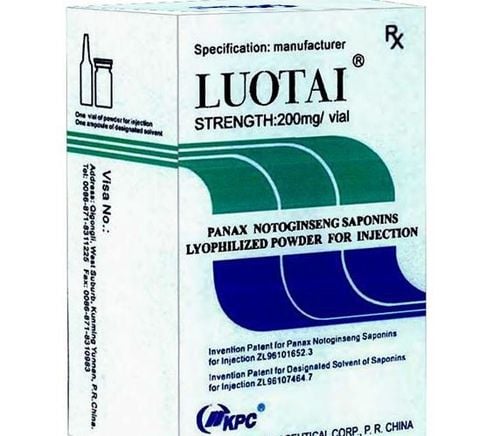This is an automatically translated article.
Acute myocardial infarction is one of the dangerous medical emergencies, many serious complications threaten the life of the patient. In addition to imaging, blood biochemical tests also play a very important role in the diagnosis and monitoring of disease progression.
1. What is acute myocardial infarction?
Acute myocardial infarction is a condition in which the heart muscle is completely deprived of blood supply leading to necrosis. The disease often has a sudden onset, progresses rapidly to death if not detected and treated promptly.
The main cause of myocardial infarction is atherosclerosis. Atherosclerosis causes the artery to narrow, reducing blood flow to the heart muscle. When the atherosclerotic plaque is removed, it will form a thrombus, blocking the blood vessels leading to myocardial necrosis. Necrotizing cardiac muscle cells will release cell components into the bloodstream and disrupt the heart's contractile activity, causing many dangerous complications, even death.

Nhồi máu cơ tim cấp tính để lại nhiều biến chứng nặng nề và có thể dẫn tới tử vong
2. What is the effect of biochemical blood test in acute myocardial infarction?
Blood biochemical tests in acute myocardial infarction are essential and highly valuable. These tests are used to:
Support the diagnosis of acute myocardial infarction in cases where the ECG changes are not obvious (covered by bundle branch block, diaphragmatic infarction,...). Helps in differential diagnosis of pulmonary infarction, angina pectoris. Monitor disease progression. Early detection of recurrent symptoms, new symptoms, signs predicting severe disease progression. Evaluate treatment effectiveness.
3. Blood biochemical tests in acute myocardial infarction
Blood biochemistry test CK-MB:
Origin: CK is creatine kinase, including CK-MM (striated muscle), CK-MB (heart muscle) and CK-BB (brain). CK-MB is thought to be myocardial-specific CK. Normal value: CK-MB < 24 U/L. Significance: As the gold standard for diagnosis within 24 hours of myocardial infarction, CK-MB is elevated after 4 hours of infarct onset, can be up to 10-20 times the normal value and returns to normal after 4 hours. -5 days; differential diagnosis of recurrent infarction and reversible infarct; diagnosis of reperfusion; CK-MB is considered the only test for the diagnosis of postoperative myocardial infarction because the hemolysis increases the activity of other enzymes. Blood biochemical test Myoglobin:
Origin: Myoglobin is a protein found in the cytoplasm of cardiac and skeletal muscle. Normal value: Myoglobin plasma <70-110 μg/L. Significance: Myoglobin is elevated very early (after 2 hours) in acute myocardial infarction, recurrent myocardial infarction or reperfusion; Elevated myoglobin may suggest an early diagnosis of myocardial infarction, but the myoglobin test is not specific for myocardium because it is also elevated in skeletal muscle damage. Troponin blood biochemical test:
Origin: Troponin is a protein complex with 3 subunits, including troponin I, troponin T and troponin C. Troponin plays a regulatory role in the interaction of actin and myosin in skeletal muscle. Troponin I and troponin T are most often used in blood biochemical tests to help diagnose acute myocardial infarction. Normal value: Troponin I plasma < 0.1-0.2 μg/L; Plasma troponin T < 0.03 ng/mL. Significance: Troponin I is only present in the myocardium, so it is 100% specific for the heart; Troponin I increases with Troponin T from 3 to 4 hours after pain and peaks after 12-24 hours; Troponin T is not myocardial specific, but myocardial troponin T can be determined by immunological response; Troponin T appears early and decreases gradually until the 12th day, so troponin T has the ability to detect late myocardial infarction; Troponin T is also used to monitor thrombolytic therapy; It is possible to assess the size and severity of myocardial infarction based on the value of troponin T on days 3-4.
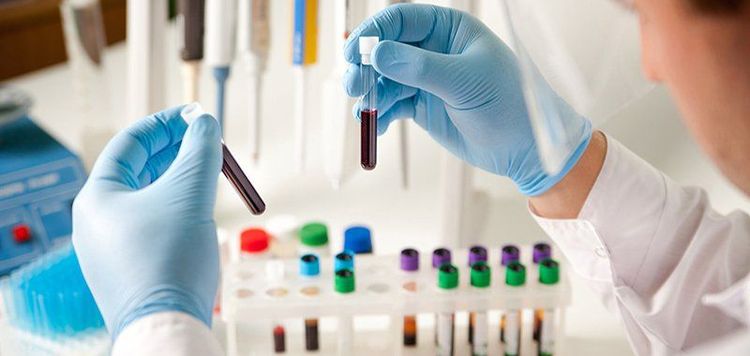
Xét nghiệm sinh hoá máu có ý nghĩa quan trọng trong chẩn đoán nhồi máu cơ tim cấp
LDH blood biochemical test:
Origin: LDH is an enzyme found in all cells, especially in liver, heart muscle, and skeletal muscle. LDH catalyzes the conversion of pyruvic acid to lactic acid (the final reaction in anaerobic glycolysis). LDH has 5 isozymes including LDH1 to LDH5. Normal value: plasma LDH 230-460 U/L. Significance: LDH1 and LDH2 increase in myocardial infarction from 10h-12h after pain, peak from 48h-72h; 80% of patients with myocardial infarction have LDH1/LDH2 ratio > 1'; LDH1 may still be elevated even after total LDH has returned to normal; LDH elevation lasting from 10-14 days is very valuable in diagnosing late MI when CK-MB has returned to normal. GOT blood biochemical test:
Origin: GOT is an enzyme found in all tissues, most commonly in the heart muscle, then in the liver and skeletal muscle. Normal value: 20-40 UI/L. Meaning: Valid in case of late sampling (after 24 hours) when CK no longer increases; the increase is usually around 200 UI/L; indicates re-infarction status by increasing GOT activity when the enzyme returns to normal. HBDH blood biochemical test:
Origin: HBDH is the most abundant enzyme in the heart muscle compared to other tissues. Normal value: plasma HBDH 55-140 U/L. Meaning: HBDH clearly increases from 6h-12h, peaks after 30h-72h and returns to normal after 10-20 days; HBDH has a higher specificity than LDH, is more sensitive than GOT and total LDH; HBDH/LDH index > 0.81 in patients with acute myocardial infarction. In summary, acute myocardial infarction is one of the dangerous medical emergencies, with many serious complications threatening the patient's life. Therefore, when you notice the signs of the disease, you should go to a reputable medical facility for examination.
Currently, Cardiovascular Center - Vinmec International General Hospital is one of the leading centers in the country for examination, diagnosis, screening and treatment of cardiovascular diseases. Vinmec not only has the convergence of a team of experienced and reputable leading experts in the field of surgical treatment, internal medicine, interventional cardiac catheterization, but also has a system of modern equipment, on par with The most prestigious hospitals in the world such as: MRI 3 Tesla (Siemens), CT 640 (Toshiba), high-end endoscopy equipment EVIS EXERA III (Olympus Japan), high anesthesia system Avace level, Hybrid operating room according to international standards... Especially, with the space designed according to 5-star hotel standards, Vinmec ensures to bring patients the most comfort, friendliness and peace of mind. .
Please dial HOTLINE for more information or register for an appointment HERE. Download MyVinmec app to make appointments faster and to manage your bookings easily.




